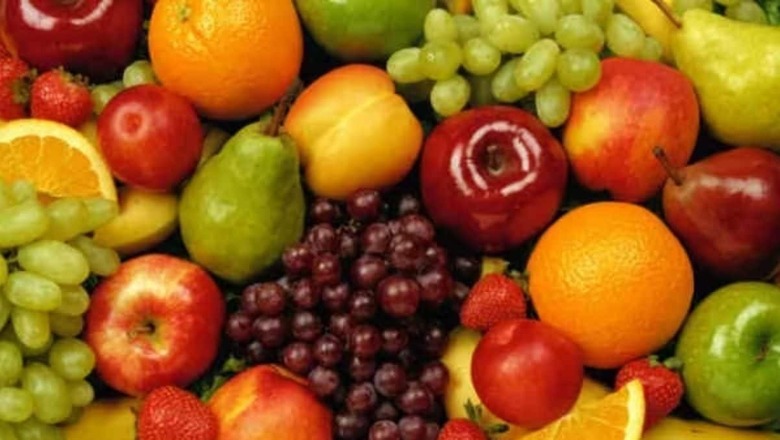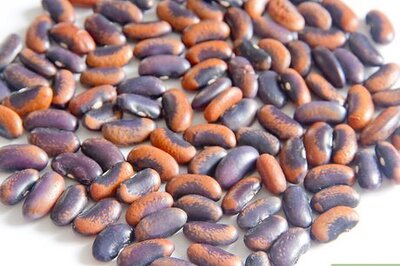
views
Over the years, a lot of research has provided fascinating results on how food affects our moods. In today’s fast-paced world, where stress has become an unavoidable part of everyone’s life, people are trying to seek ways to improve their mental wellbeing.
The gut-brain axis is a complex communication network between the gut and the brain, and is fundamental to our understanding of how diet affects mood and stress. A healthy diet promotes a healthy gut which can positively influence mental health by producing neurotransmitters like serotonin and dopamine.
Dr. Meghana Pasi, Head, MyThali, Arogya World, says, “In as stressful situation, cortisol and adrenaline (stress hormones) play a crucial role in the preparing the body for a “fight or flight” response. However, recurrent episodes of stress / chronic stress can lead to elevation of these hormones, negatively impacting mental and physical health. For eg. elevated levels of cortisol, can lead to weight gain, anxiety, depression, weakened immune function, and various other chronic conditions.”
Research has shown significant influence of some foods on stress hormones. They help in boosting our mood, reduce stress, and enhance overall well-being. We call them as Happy Foods.
Beyond managing stress, happy foods contribute to overall wellness in several ways, Dr Pasi explains:
- Certain foods boost mood by influencing brain chemistry. For example, chicken and bananas, high in tryptophan, help produce serotonin, which is associated with happiness and relaxation.
- Protein sources and complex carbs which are part of a balanced diet help maintain steady energy levels, reduce fatigue and support a more positive mood. They prevent energy slumps that may contribute to stress.
- Foods that promote serotonin and melatonin production, such as nuts, seeds, and berries, can help regulate sleep patterns and improve overall restfulness Proper nutrition can also enhance sleep quality, which is crucial for managing stress.Dr Pasi shares some Happy Foods that you can include in your everyday meals:
- Probiotics (found in foods like yogurt, kimchi, kanji) and prebiotics (found in foods like garlic, onions, and asparagus) support a healthy gut environment, promoting better mental health and resilience against stress.
- Complex Carbohydrates found in whole grains, oats, and brown rice help increase serotonin levels in the brain. Serotonin promotes a feeling of well-being and calmness and helps reduce anxiety.
- Fatty fishes (salmon, tuna, mackerel), flaxseeds and walnuts are rich in omega-3 Fatty Acids which are known to reduce inflammation and lower the levels of stress hormones in the body. They also play a role in maintaining brain health, which can positively impact mood.
- Foods like spinach, beans, pumpkin seeds are rich in magnesium which helps regulate cortisol and thereby reduce stress and promote relaxation.
- Fruits like oranges, strawberries, and bell peppers are high in vitamin C, which has been shown to reduce cortisol levels and support the immune system. Including these foods in your diet can help buffer the body’s response to stress.
By planning our meals which includes a variety of happy foods can help keep stress at bay throughout the day. Aim for a balanced diet that includes colourful fruits and vegetables, whole grains, lean proteins, and healthy fats to ensure a well-rounded intake of essential vitamins and minerals.




















Comments
0 comment